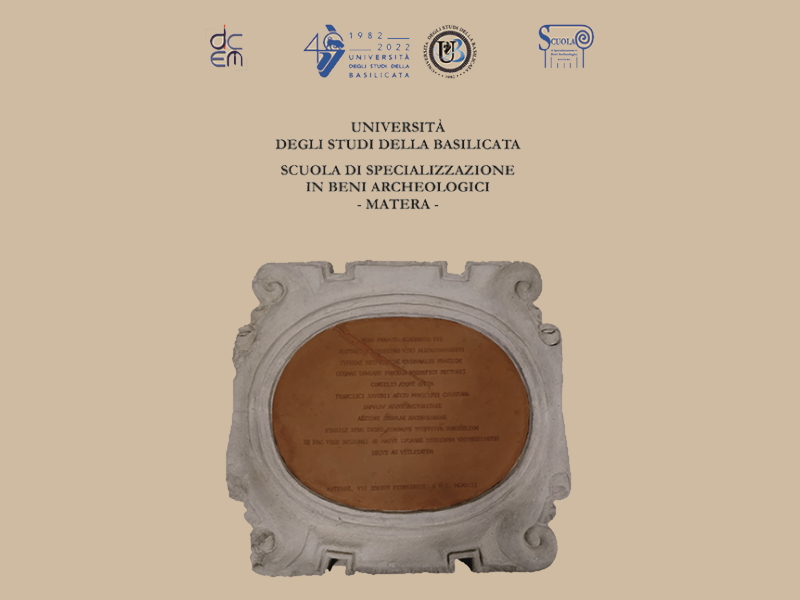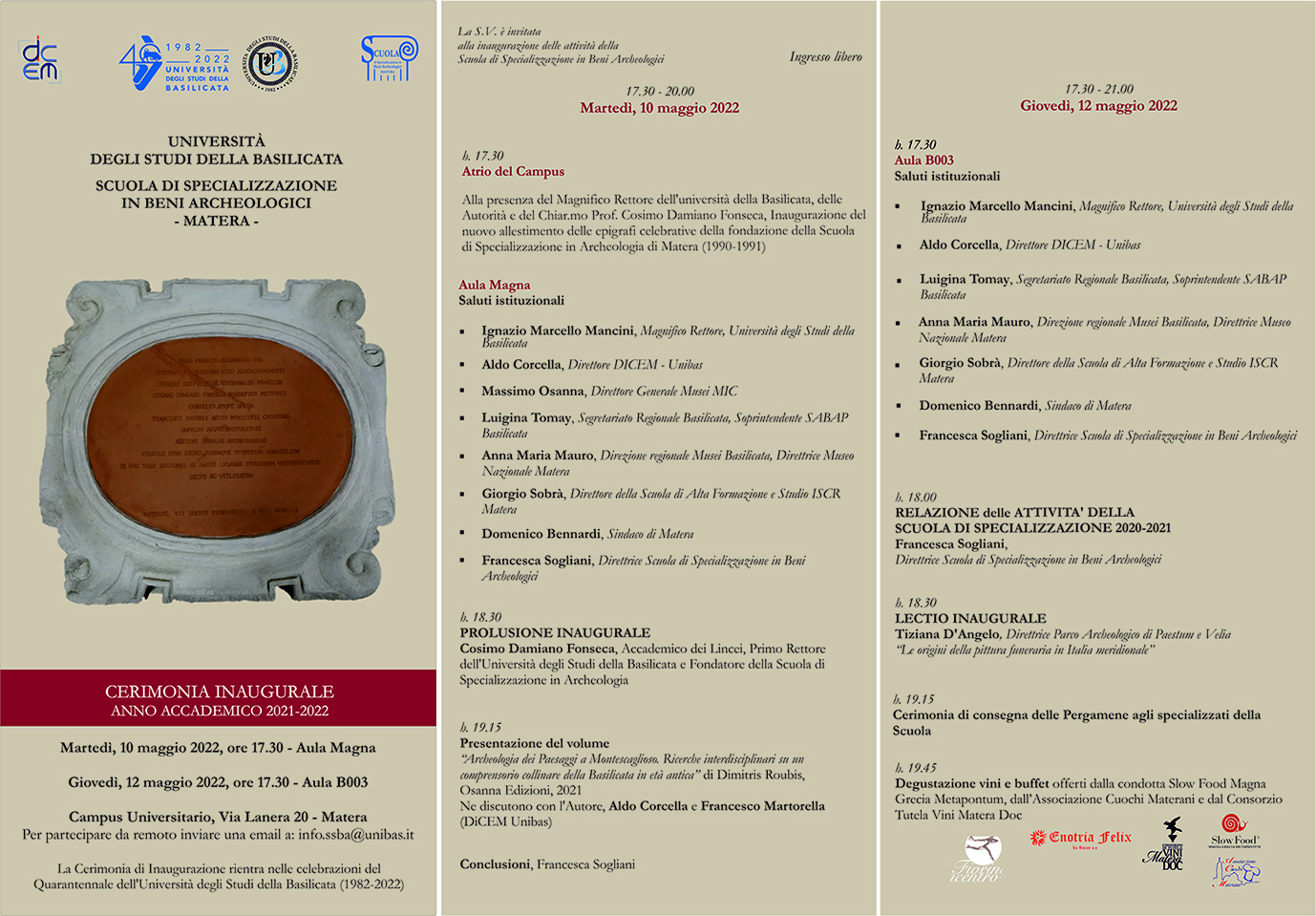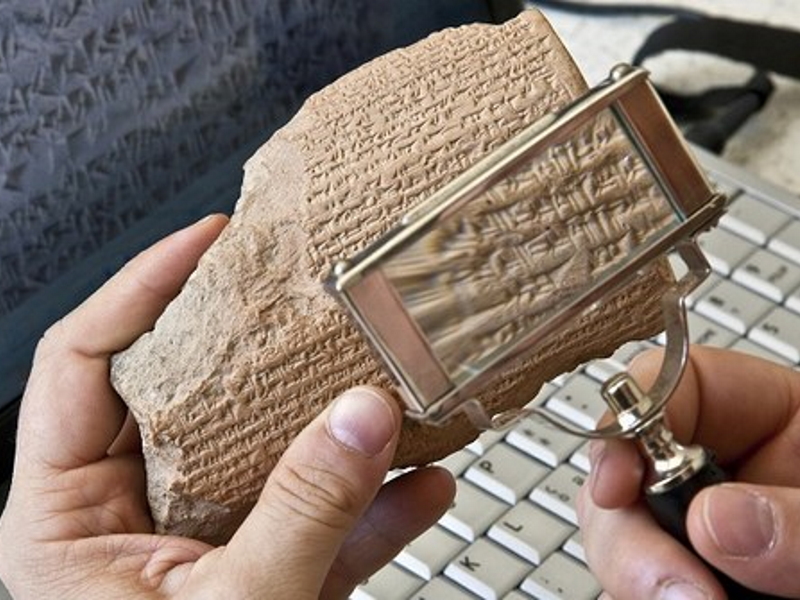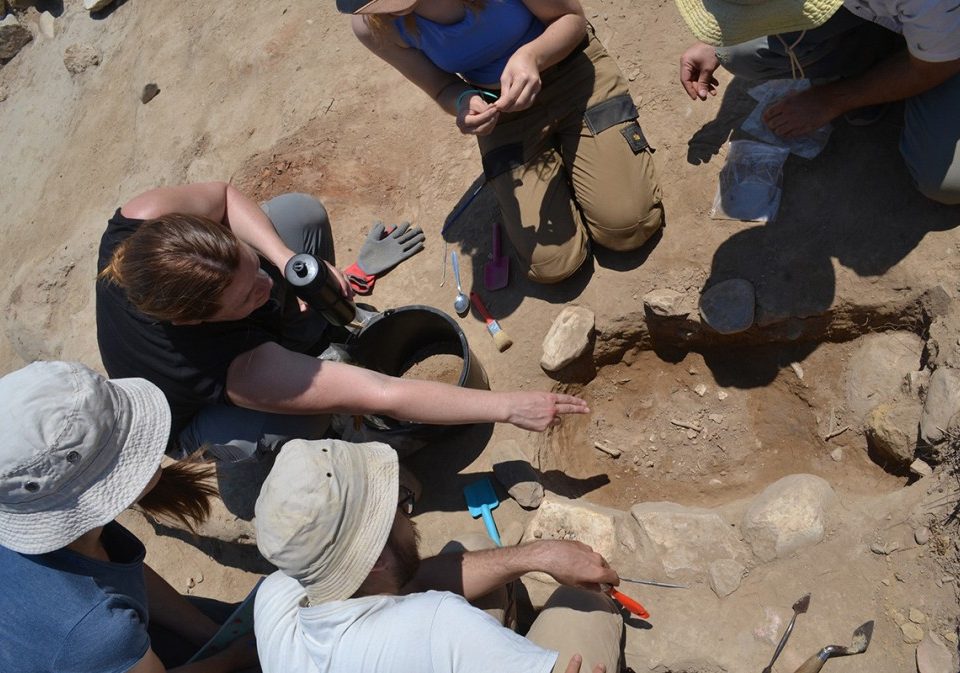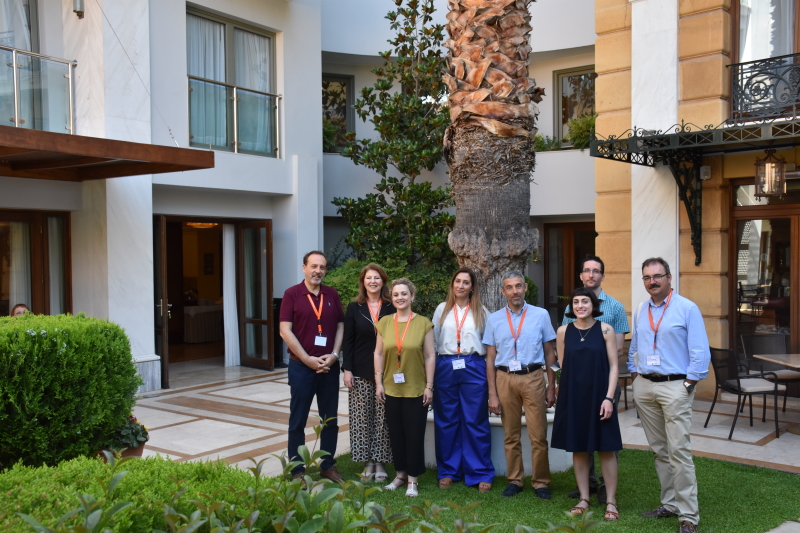Matera, Tuesday 10 May 2022, 5.30 p.m. (Aula Magna) - Thursday 12 May 2022, 5.30 p.m. (Aula B003)
TO FOLLOW THE EVENTS REMOTELY:
https://meet.google.com/ytk-jawp-sin
In Matera, Tuesday 10 May 2022 and Thursday 12 May 2022, two days will be dedicated to the inauguration ceremony for the 2021-2022 academic year of the Post-graduate School of Archaeology at the University of Basilicata. On Tuesday, 10 May, at 5.30 p.m. in the Aula Magna of the University Campus, with the participation of the Rector, Prof. Ignazio Marcello Mancini, and of Prof. Cosimo Damiano Fonseca (first Rector of Unibas and Academico dei Lincei) the programme will begin with the presentation of the new display of celebratory epigraphs created for the foundation of the Post-graduate School in the 1990-1991 academic year. The epigraphs, created at the invitation of Prof. Fonseca by the Greek artist Sofia Vakali, will be installed in the atrium of the new Matera University Campus, designed by the architect Roberto Blasi, after careful restoration work entrusted to the ICR School of Advanced Training and Restoration (Matera campus), thanks to the willingness of Director Giorgio Sobrà, Prof. Eleonora Gioventù and the students of the 71st course. After the initial greetings and speeches, the event will continue with the opening speech by Prof. Cosimo Damiano Fonseca, and the presentation of the book " Archeologia dei Paesaggi a Montescaglioso. Ricerche interdisciplinari su un comprensorio collinare della Basilicata in età antica” of Dimitris Roubis (Osanna Edizioni, 2021) prepared by Prof. Aldo Corcella and Prof. Francesco Martorella (Dicem Unibas). The second event of the opening ceremony will take place on Thursday 12 May 2022, starting at 5.30 p.m., in B003. After the institutional greetings, there will be the presentation of the activities 2020-2021 of Post-graduate School of Archaeology of Matera by the Director, Prof. Francesca Sogliani, followed by the inaugural lecture dedicated to "The origins of funerary painting in southern Italy" by the Director of the Archaeological Park of Paestum and Velia, Tiziana D'Angelo. “With this inauguration – Prof. Sogliani said - the School finally returns to its premises after two years of didactics and remote activities caused by the difficult period of the pandemic. In 2020, restrictions due to the pandemic prevented the usual way of meeting and exchanging between teachers and students and the physical presence on the excavation sites. In 2021, courses continued in distance learning mode, while practical activities from June to October, carefully organised to meet health and hygiene guidelines, were fortunately resumed, although mixed mode was used for individual needs, often at the last minute. In this way, we gradually re-established the fruitful relationship of proximity and direct exchange that constitutes the beating heart of the School, and which allows for the exchange of ideas between the teaching staff and the students that is so useful for training and research. In any case, we have taken great care to involve the students in every way possible, ensuring that the curricular courses, workshops and excavation and survey activities are carried out. This has required a great deal of organisational effort, to which all the teachers, the Director and the technical-administrative staff of the Department of European and Mediterranean Cultures, to which the School belongs, have contributed with their fundamental contribution, as well as all the collaborators who support me in the management of the School, whom I would like to mention here, Bruna Gargiulo, Ester Maria Annunziata, Silvia Vullo, Luisa Aino and Ida Campanile. I would like to thank them all for their commitment, expertise and support during these very critical years. In any case, the School's conferences and seminars of Italian and foreign colleagues have continued. With the presentation of case studies and projects on an international scale, they have enriched the training provided by the curriculum, confirming the Post-graduate School of Matera as one of the excellences in southern Italy, chosen by many graduates in archaeology from different Italian universities. In addition, there is a long tradition of dialogue and exchange with national and international institutions, associations, communities and professionals, and in particular the Basilicata Creative Cluster, which together participate in the enhancement and promotion of Italy's archaeological and cultural heritage, also through the involvement of our students. In this regard, I would like to mention the Soprintendenza Archeologia Belle Arti e Paesaggio della Basilicata and the Direzione Nazionale Musei of Basilicata, as well as the CNR, institutions with which the Post-graduate School boasts a long tradition of collaboration and joint projects. It is our firm intention to continue in this direction and with the hope of returning to normality once and for all.”

